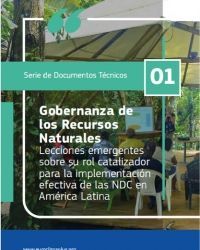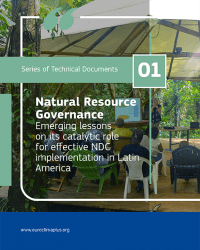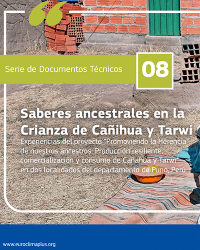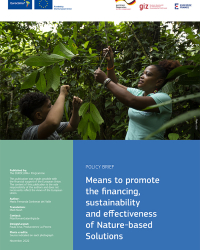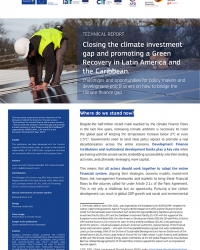Búsqueda por categoría
Más descargados
| Guía Cambio Climático y agricultura familiar con lentes de género 10827 Descargas | 2.49 MB | |
| Informe anual 2021-2022 6637 Descargas | 4.62 MB | |
| Transversalizando la perspectiva de género en proyectos de acción climática: caja de herramientas 3533 Descargas | 6.6 MB |
GREEN ECONOMIC RECOVERY
1787 Descargas
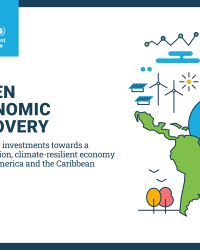 The project “Green Economic Recovery: Mobilizing investments towards a low-emission and climate-resilient economy in Latin America and the Caribbean” aimed to support selected LAC countries (Argentina, Costa Rica, Grenada, Honduras and Panama) to address the main barriers faced by countries when designing, planning and financing post-COVID-19 recovery plans aligned with the Paris Agreement.
The project “Green Economic Recovery: Mobilizing investments towards a low-emission and climate-resilient economy in Latin America and the Caribbean” aimed to support selected LAC countries (Argentina, Costa Rica, Grenada, Honduras and Panama) to address the main barriers faced by countries when designing, planning and financing post-COVID-19 recovery plans aligned with the Paris Agreement.
Throughout the technical accompaniment, a series of evaluations were carried out that analyze the opportunities to integrate lowemission climate-resilient development strategies into economic recovery packages. These analyses demonstrate that economic recovery plans aligned with the Paris Agreement are forwardlooking and cost-efficient investments for LAC governments. In this spirit, the “Green Economic Recovery” project worked closely with authorities and experts in 5 countries to support the planning process with science-based assessments. For this purpose, the Green Economy Model (GEM) was used; a System Dynamics (SD) modeling tool that facilitates a comprehensive approach to environmental planning.
| Categoría: | Serie Documentos técnicos |
| Tamaño del archivo: | 7.08 MB |
| Hits: | 8284 Hits |
| Descargas: | 1787 veces |
| Título: | GREEN ECONOMIC RECOVERY |
| Año: | 2024 |
| Autor institucional: | PNUMA |
| Formato: |

